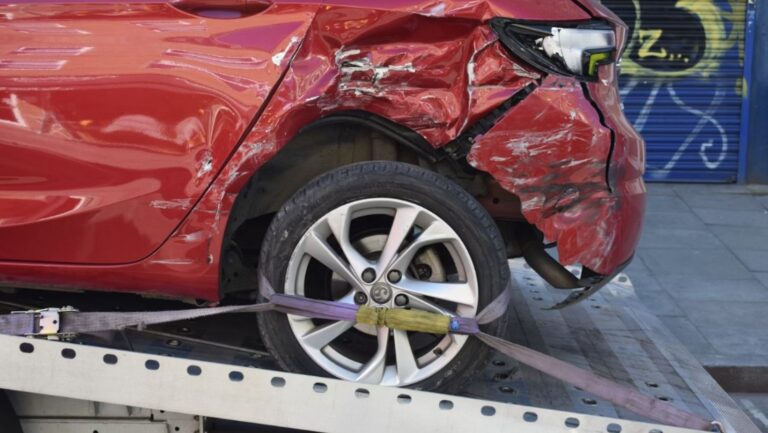Navigating the intricate web of traffic laws is an essential aspect of responsible driving, aiming to ensure the safety of both motorists and pedestrians. Every road user is expected to adhere to a set of regulations that govern their behavior on the streets.
However, when these rules are flouted, the consequences can be severe, particularly in the event of a car crash. In this article, we will discuss how various traffic laws can significantly impact liability in car accidents.
The Foundation of Traffic Laws
Traffic laws are the bedrock of road safety, providing a standardized framework for the orderly movement of vehicles and pedestrians. These regulations, established by local and national authorities, encompass a wide array of rules aimed at preventing accidents and ensuring that traffic flows smoothly. Speed limits, traffic signals, and right-of-way protocols are integral components of this system.
Speed limits, for instance, are meticulously set based on factors like road type, surrounding environment, and historical accident data. They serve the dual purpose of preventing accidents and minimizing the severity of collisions when they do occur. Traffic signals, on the other hand, regulate the orderly progression of vehicles at intersections, reducing the risk of collisions and conflicts.
Right-of-way rules dictate the order in which vehicles proceed in specific scenarios, minimizing confusion and potential accidents. These rules are foundational, providing a baseline for safe and predictable driving behavior.
Common Traffic Violations
Despite the clear guidelines set by traffic laws, common violations persist and contribute significantly to car accidents. Speeding, perhaps one of the most prevalent infractions, endangers lives by reducing reaction time and increasing the severity of collisions.
Forbes reports that South Carolina ranks as the state with the highest risk of speed-related accidents. A staggering 46% of fatal accidents in this state were attributed to speeding.
Running red lights poses a similar threat, often resulting in dangerous T-bone collisions at intersections. Reckless driving encompasses a range of dangerous behaviors, from aggressive tailgating to weaving between lanes without signaling.
Such actions heighten the risk of accidents and are clear violations of established traffic laws. Understanding these common infractions is crucial for drivers, as they directly impact road safety and contribute to the overall assessment of liability in accidents.
The Role of Negligence in Car Accidents
Negligence is a key factor in assessing liability in car accidents. Many traffic violations are rooted in negligence, implying a failure to exercise the reasonable care expected of a responsible driver. For instance, a driver who fails to yield the right of way is likely acting negligently, increasing the likelihood of an accident.
To establish negligence, legal proceedings typically consider several factors. This includes the duty of care owed by the driver, the breach of that duty through a traffic violation, and the resulting harm.
According to FindLaw, negligence rules are typically categorized into two types: comparative and contributory negligence. Each state follows one or the other, determining how liability is assigned in the event of an accident.
In states following comparative negligence, responsibility allocation hinges on the extent of fault borne by each party. Conversely, in jurisdictions following contributory negligence, even minimal plaintiff responsibility for an accident could lead to a bar on recovering damages.
Impacts on Insurance Claims
When a traffic law is violated, it can have significant repercussions on insurance claims. Insurance companies scrutinize the circumstances surrounding accidents to determine fault and assess claims. Violating traffic laws can tip the scales in favor of the non-violating party or result in shared liability.
This influences the compensation received by the parties involved. Insurance premiums may also be affected by traffic violations. A driver with a history of violations is often considered a higher risk, leading to increased premiums or even policy cancellations.
Understanding these impacts on insurance claims highlights the financial consequences of traffic law violations. This highlights the importance of responsible driving to maintain favorable insurance terms.
Legal Consequences for Traffic Law Violations
Traffic law violations can have a range of legal consequences, depending on the severity of the infraction. Minor offenses may result in fines, points on the driver’s license, or mandatory traffic school.
More serious violations, such as driving under the influence or reckless driving, can lead to license suspension, vehicle impoundment, or even imprisonment. In addition to the immediate penalties, traffic violations may leave a lasting mark on a driver’s record. The CDC reports that approximately one million arrests occur annually in the United States due to driving under the influence.
Accumulating points on a driving record can lead to increased insurance premiums and difficulties in obtaining employment, particularly in roles that involve driving responsibilities. Understanding the legal consequences of traffic law violations underscores the need for compliance and responsible driving to avoid both immediate and long-term repercussions.
Local Traffic Laws and Their Significance
Local traffic laws add an additional layer of complexity to the driving landscape, as they can vary from one jurisdiction to another. These laws are designed to address specific regional concerns, taking into account factors such as local traffic patterns, demographics, and infrastructure. Understanding and adhering to these nuances is crucial for drivers to navigate safely within different communities.
Local traffic laws may include unique regulations related to school zones, pedestrian crossings, or specific roadway designs. As an example, let’s dive into Missouri’s unique regulations. The Show-Me state boasts diverse landscapes, from bustling urban areas to expansive rural regions, each presenting its own set of challenges for drivers.
In urban hubs like St. Louis, where traffic congestion is a daily reality, strict adherence to speed limits and pedestrian right-of-way rules is crucial. St. Louis is renowned for its intricate road systems and historic neighborhoods. Navigating the city streets demands a keen awareness of local traffic laws to ensure not only personal safety but also the safety of others.
However, despite these efforts, accidents can still occur. In the unfortunate event of a car crash, individuals may find themselves seeking legal counsel. The expertise of a seasoned St. Louis car accident lawyer becomes crucial in such cases. These legal experts specialize in navigating the intricacies of local traffic laws, insurance claims, and liability assessments specific to the St. Louis area.
According to TorHoerman Law, St. Louis car accident lawyers rely on their understanding of the city’s traffic patterns, prevalent violations, and local court procedures. They use this knowledge to build a strong case for their clients. Understanding the unique legal landscape of cities like St. Louis is crucial for seeking fair compensation and making sure that justice is delivered.
Navigating Liability in Car Accidents
Determining liability in car crashes involves a careful examination of the circumstances surrounding the accident, with a particular focus on traffic law violations. If a driver’s actions are found to have violated traffic laws and contributed to the collision, they may be deemed at fault.
This assessment is crucial for legal proceedings, insurance claims, and the overall resolution of the incident. Traffic law violations can serve as powerful evidence in establishing liability.
Eyewitness testimonies, surveillance footage, and police reports may all be examined to reconstruct the events leading up to the crash. The degree of negligence exhibited by the violating party plays a key role in assigning liability. This underscores the importance of responsible driving to avoid legal consequences and promote overall road safety.
In conclusion, the intricate interplay between traffic laws, negligence, and local nuances significantly shapes liability in car accidents. Violations not only impact legal outcomes and insurance claims but also underscore the importance of responsible driving for overall road safety.
Recognizing the diverse landscape of local traffic laws becomes paramount, necessitating heightened awareness from drivers. Legal professionals, like St. Louis car accident lawyers, play a pivotal role in navigating jurisdiction-specific complexities.
Ultimately, adherence to traffic laws not only mitigates immediate consequences but fosters a culture of safety, promoting a harmonious coexistence on the roads.
Image by unsplash










